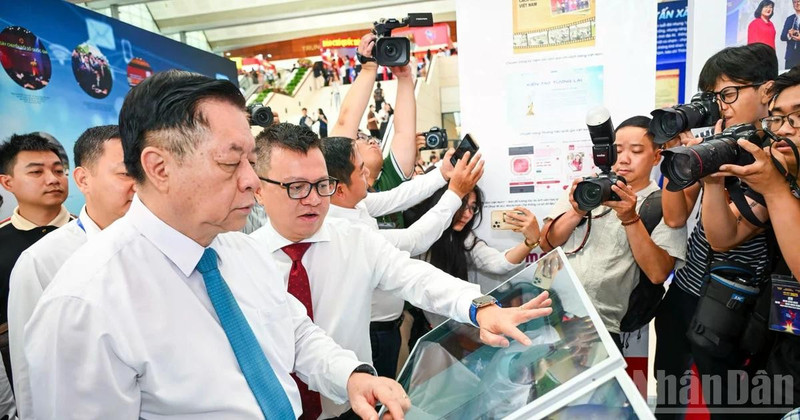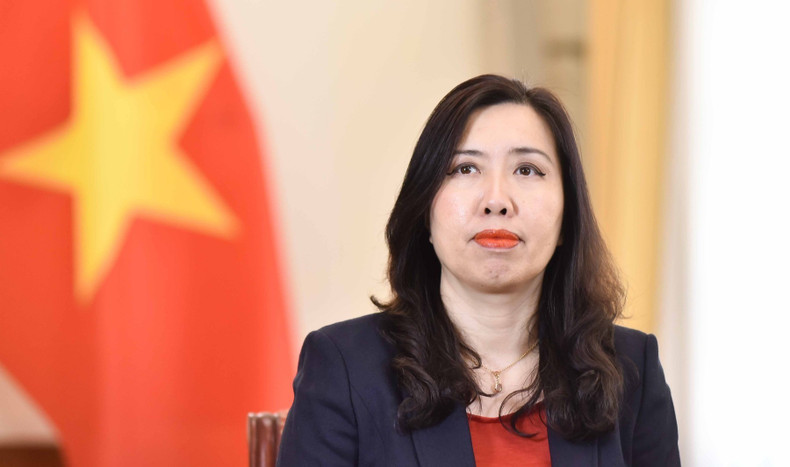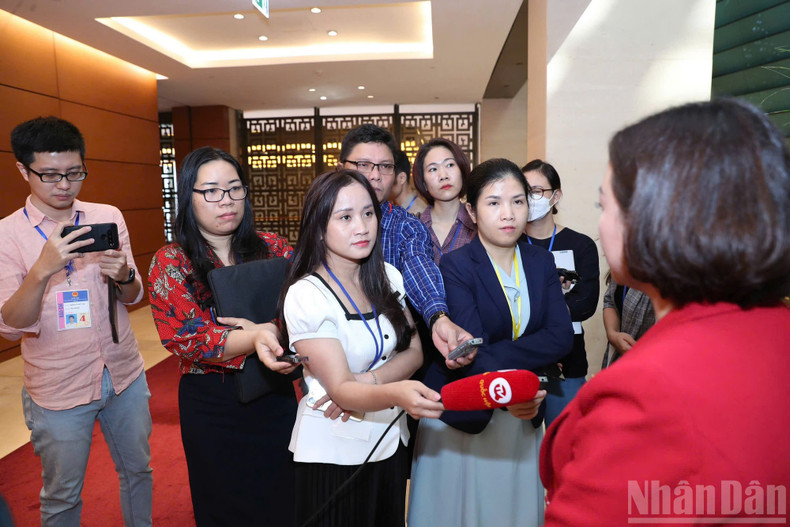External Relations Press — Pillar of national soft power in the new era
Beyond its traditional role of information dissemination and advocacy, external relations press has played an active part in positioning Viet Nam as a peaceful and stable nation on the world map. It has also become a sharp and timely tool to counter false or distorted information about the country, thereby safeguarding national interests and preserving the nation’s reputation.

On the occasion of the 100th anniversary of Viet Nam Revolutionary Press Day (June 21, 1925 –2025), Deputy Minister of Foreign Affairs Le Thi Thu Hang shared her insights on the unique role of external relations press within the broader revolutionary press movement, as well as the demands placed on it in today’s rapidly evolving global media landscape.
Inseparable force in Viet Nam’s foreign affairs
Affirming the historical significance of Viet Nam revolutionary press, Deputy Minister Le Thi Thu Hang emphasised that Viet Nam revolutionary press was born out of the aspiration for national independence and the restoration of the people’s right to self-determination. From the founding of Thanh Nien (Youth) Newspaper by leader Nguyen Ai Quoc in 1925, the press has become a vital force on the ideological and cultural front, accompanying the revolutionary cause through every phase of the nation’s history.
Within that stream, external relations press emerged as a “special force” playing an irreplaceable role in bringing Viet Nam to the world, and bringing the world closer to Viet Nam. Today, it is not just a communication channel but a key instrument for shaping Viet Nam’s image as a peaceful, stable, reforming, and fully integrating country.

According to the deputy minister, external relations press has become a sharp weapon in the battle of international public opinion, promptly countering falsehoods and distortions about Viet Nam’s situation, thereby protecting national interests and enhancing the country’s international credibility.
Notably, during major international events such as Viet Nam’s ASEAN chairmanship in 2020, the US–DPRK Summit in Ha Noi, COP26, and Viet Nam’s term on the UN Security Council, external relations press proved its capability and core role in shaping favourable international public discourse.
With the unprecedented shifts in the global communication landscape, Vietnamese external relations press now faces both immense opportunities and significant challenges.
Nowadays, according to Deputy Minister Hang, information is not only a resource but also a strategic instrument of power. “Cross-border digital platforms and social media have become highly effective channels for reaching global audiences. This presents an opportunity for Viet Nam to enhance its visibility and influence in the global media space in a rapid and cost-effective manner,” she said.
However, this also brings fierce competition in terms of appeal, opinion leadership, and factual accuracy. Fake news and distorted information about Viet Nam can originate from anywhere and spread rapidly, with potentially serious consequences if not addressed in time.
“Information soldiers” in digital age
In this context, the deputy minister emphasised the urgent need for a team of external affairs journalists who are not only agile in accessing and processing information, sharp in critical thinking, but also politically steadfast and proficient in modern media technologies.
Politburo’s Conclusion No. 57-KL/TW on reforming external relations information clearly outlines the need to “combine traditional and modern communication methods”, “proactively provide truthful, objective, and timely information”, and “ensure effective coordination between political diplomacy and international communication.”
The deputy minister affirmed that this is not just a strategic directive but also serves as a compass for external relations press in the digital era.

In her role as a senior official directly overseeing external relations information, Deputy Minister Hang expressed deep appreciation for the silent contributions of external affairs journalists — those who engage in “diplomacy through words and images.”
“External relations press should be recognised as a strategic component of national soft power,” she emphasised. The external relations journalists, she added, must be well-rounded “soldiers” who always embody the integrity, humanity, and sense of responsibility of a true journalist.
The deputy minister also expressed her hope that the relevant agencies and media regulators would continue to pay greater attention and invest more heavily in external relations press, from training policies and technological infrastructure to expanding operational space and international cooperation. Only in an enabling environment can external relations journalists fully unleash its potential and meaningfully contribute to elevating Viet Nam’s global reputation and position.
Deputy Minister Le Thi Thu Hang also extended her congratulations to all journalists, especially those working in external relations information, on the occasion of the 100th anniversary of Viet Nam Revolutionary Press.








